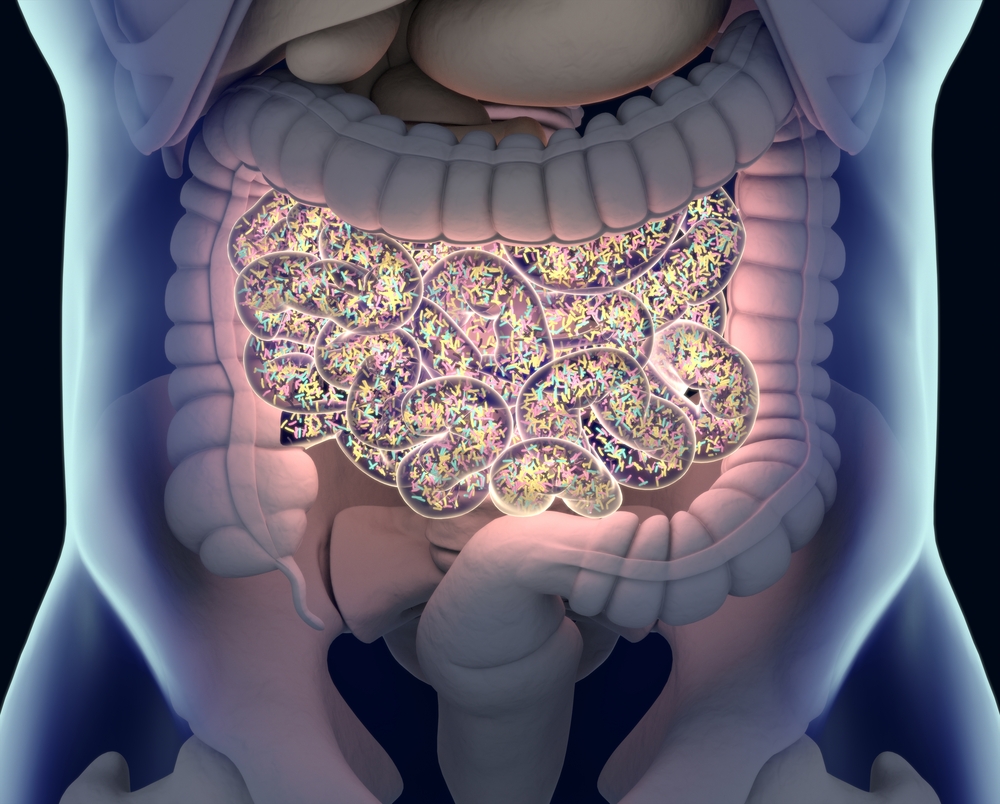Dysbiosis occurs when the microbiome of the GI tract, including the stomach and intestines, becomes unbalanced. The microbiome of the GI tract, also known as the gut flora, is essential for digestion and immune functioning.
There are different types of dysbiosis that you may have. Type 1 is when you lose the good gut bacteria. Type 2 is when you have too much harmful bacteria. Type 3 is when you lose your overall gut microbiome, which means you don’t have enough of either good or bad bacteria.
Dysbiosis can be temporary and mild. In some cases it can resolve on its own without any intervention.
Symptoms
Symptoms can vary depending on what is causing the imbalance, and what type of dysbiosis you have.
Some symptoms include bad breath, upset stomach, nausea, constipation, diarrhea, difficulty urinating, vaginal itching, bloating, chest pain, rash, redness, fatigue, having trouble concentrating, anxiety, depression, acid reflux, food intolerances, gas, and acne.
Causes Of Gut Imbalance
A lot of different things can upset your gut flora. Dietary changes like increasing the amount of protein, sugar, or food additives in your daily diet. Accidental chemical consumption. Drinking more than two alcoholic beverages a day. Medications or antibiotics can upset your gut flora. Poor dental hygiene. High levels of stress and anxiety.
There are certain conditions and diseases that can make you at a higher risk for dysbiosis. These conditions are Irritable bowel syndrome, colitis, candida, celeriac, leaky gut syndrome, diabetes, obesity, Polycystic ovarian syndrome, eczema, liver disease, heart disease, heart failure, dementia, Parkinson’s disease, and colon cancer.
Diagnosing Dysbiosis
Diagnosing dysbiosis can be done by your doctor. After they take a physical exam of you and listen to your symptoms, they may want to run a few different tests.
One test is a urine analysis. This test will check for acid levels, if they levels are abnormal the bacteria in your GI tract may possibly be out of place. A stool analysis may also want to be done. This too can be checked by the lab to see if there is an imbalance of gut bacteria.
The hydrogen breath test, which is often used for diagnosing SIBO, small intestinal bacterial overgrowth, can also show if there is an imbalance in gut bacteria. The hydrogen breath test starts with you drinking a sugary beverage. Then over the course of 3 hours every 15 minutes you blow into a balloon. The amount of hydrogen that is in your breath will be able to tell your doctors if the gut bacteria is imbalanced.
Treatment
If dysbiosis is left untreated it can lead to other conditions that affect your GI tract that can be chronic. Conditions like Irritable bowel disease, irritable bowel syndrome, diabetes, obesity, cancer, cardiovascular problems, or central nervous disorders. A healthy gut flora is important for your body to function properly.
With dietary and lifestyle changes you should be able to treat dysbiosis. If you are suffering from dysbiosis because of an underlying condition, getting treatment for that will be the first step.
If it is caused by your diet you may need to make some dietary changes. Your doctor may suggest that you eat higher quality proteins, and increase your fiber intake.
It is also important to make sure you are getting vitamins B6, B12, calcium, magnesium, beta-carotene, and zinc in your daily diet. Adding foods like spinach, kale, salmon, and mackerel is also important.
Avoiding eating saturated fats, sugar, or refined flour can be beneficial. Other foods to avoid are processed meats, corn, oats, bread, bananas, apples, grapes, yogurt, milk, cheese, corn syrup, maple syrup, and raw cane sugar.
Prebiotics, or probiotics can also help maintain a healthy gut flora. You can get these from foods, or from supplements. Probiotics may be able to cure dysbiosis that is caused by too little of good gut bacteria.
Learning how to manage your stress, yoga, deep breathing, or prayer.
In some cases you may need an antibiotic to help balance out your gut flora. This can especially be the case if your dysbiosis is caused by irritable bowel syndrome.
An unbalanced digestive tract can lead to many health problems! A Healthy Gut Is Critical! #HealthSurgeon
READ MORE: How To Get Rid Of Gas Naturally
Sources:
https://www.webmd.com/digestive-disorders/what-is-dysbiosis
https://www.healthline.com/health/digestive-health/dysbiosis#outlook
https://www.verywellhealth.com/what-is-intestinal-dysbiosis-1945045




